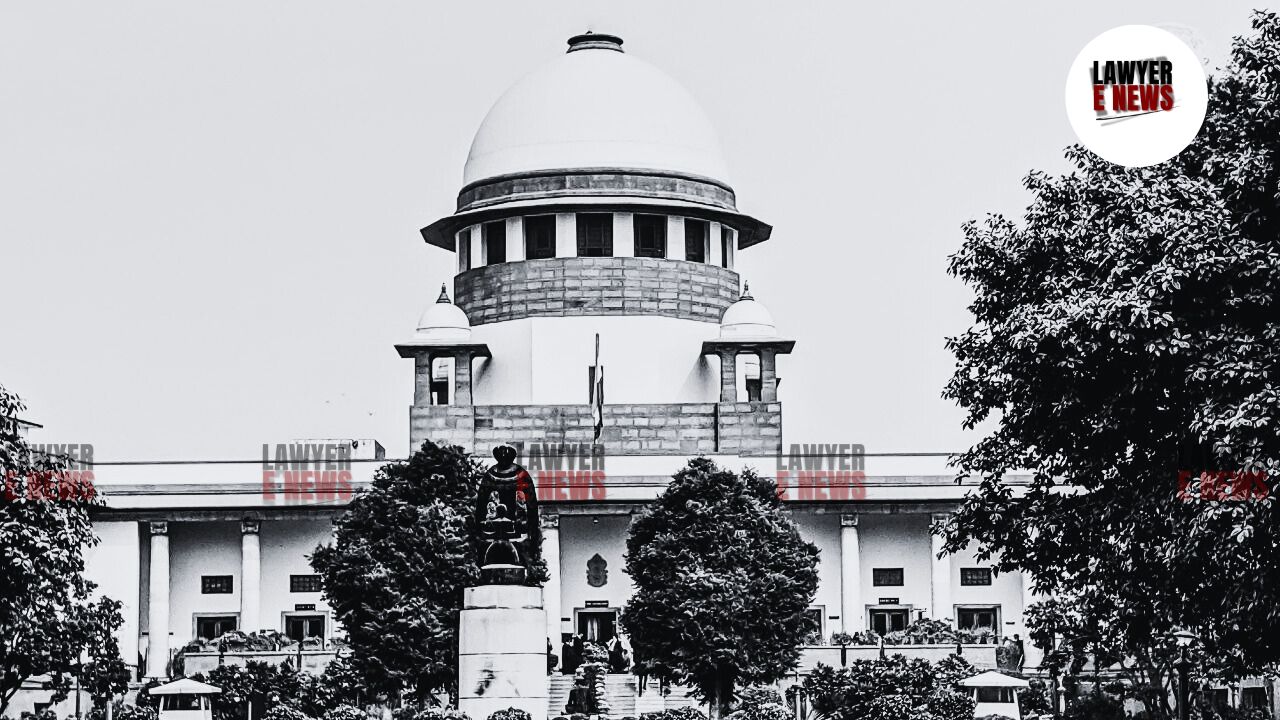-
by sayum
14 February 2026 2:22 PM



On December 20, 2024, the Supreme Court of India in Hongkong and Shanghai Banking Corp. Ltd. v. Awaz & Ors. (Civil Appeal No. 5273 of 2008) set aside a National Consumer Disputes Redressal Commission (NCDRC) ruling that capped interest rates above 30% as an "unfair trade practice" under consumer law. The Court ruled that determining banking interest rates is within the exclusive jurisdiction of the Reserve Bank of India (RBI) under Section 21A of the Banking Regulation Act, 1949, and courts or tribunals cannot interfere unless there is a violation of RBI directives.
Delivering the judgment, the Bench of Justice Bela M. Trivedi and Justice Satish Chandra Sharma held:
"The National Commission exceeded its jurisdiction by attempting to regulate the economic policy and banking practices, which falls squarely within the domain of the Reserve Bank of India."
The case originated from a consumer complaint by the voluntary association Awaz, alleging that major banks, including HSBC, Citibank, and Standard Chartered, charged usurious interest rates (36%-49%) on credit card dues, constituting an "unfair trade practice" under the Consumer Protection Act, 1986. Awaz sought relief through the NCDRC, which:
Declared interest rates above 30% as unfair trade practices.
Directed banks to limit penal interest rates to a single charge per default period.
Prohibited capitalization of penal interest.
The affected banks appealed to the Supreme Court, arguing that the NCDRC's ruling interfered with RBI's exclusive authority to regulate banking practices.
Statutory Bar under Section 21A of the Banking Regulation Act, 1949:
The Court emphasized that Section 21A expressly prohibits reopening transactions between banks and debtors on grounds of "excessive interest." It noted:
"The legislature has entrusted the Reserve Bank of India with the responsibility of regulating interest rates. Section 21A creates an unambiguous bar on judicial intervention in such matters, ensuring that banking policies remain consistent with economic objectives."
Case Law Referred:
The Court relied on precedents such as Central Bank of India v. Ravindra (2002) and Small Industries Development Bank of India v. SIBCO Investment (P) Ltd. (2022), reiterating that RBI circulars have statutory force and govern banking practices.
The NCDRC had invoked Section 2(1)(r) of the Consumer Protection Act, 1986, to declare high interest rates as unfair trade practices. Rejecting this, the Supreme Court ruled:
Interest rates, if transparently disclosed and compliant with RBI guidelines, cannot constitute an unfair trade practice.
There was no evidence of deception or misrepresentation by the banks in their terms of service.
The judgment observed:
"The terms and conditions of credit card usage, including interest rates, are part of contractual obligations. Courts cannot rewrite such contracts unless they are arbitrary, unconscionable, or illegal."
The Court held that the NCDRC exceeded its jurisdiction by attempting to regulate interest rates and dictate policy to the RBI. It stated:
"The Reserve Bank of India is the sole authority to determine interest rates and banking policy. Courts and tribunals lack expertise in economic matters and must refrain from interfering with regulatory decisions unless they are demonstrably illegal or arbitrary."
The judgment further clarified that directing the RBI to impose a cap on interest rates would undermine its autonomy and statutory authority.
The Court also questioned the maintainability of the consumer complaint, as the complainant, a registered trust, did not qualify as a "consumer" under the Consumer Protection Act. Moreover, procedural requirements under Order I Rule 8 of the Code of Civil Procedure, 1908, for filing representative complaints, were not complied with.
The Supreme Court categorically overruled the NCDRC's judgment and dismissed the complaint, concluding:
The rates of interest charged by banks were in conformity with RBI's deregulated interest rate policy.
Courts and tribunals cannot assume the role of regulators in economic and banking matters.
The ruling reinforces the principle of non-interference in economic policies and upholds the RBI's central role in maintaining financial stability.
Date of Decision: December 20, 2024
